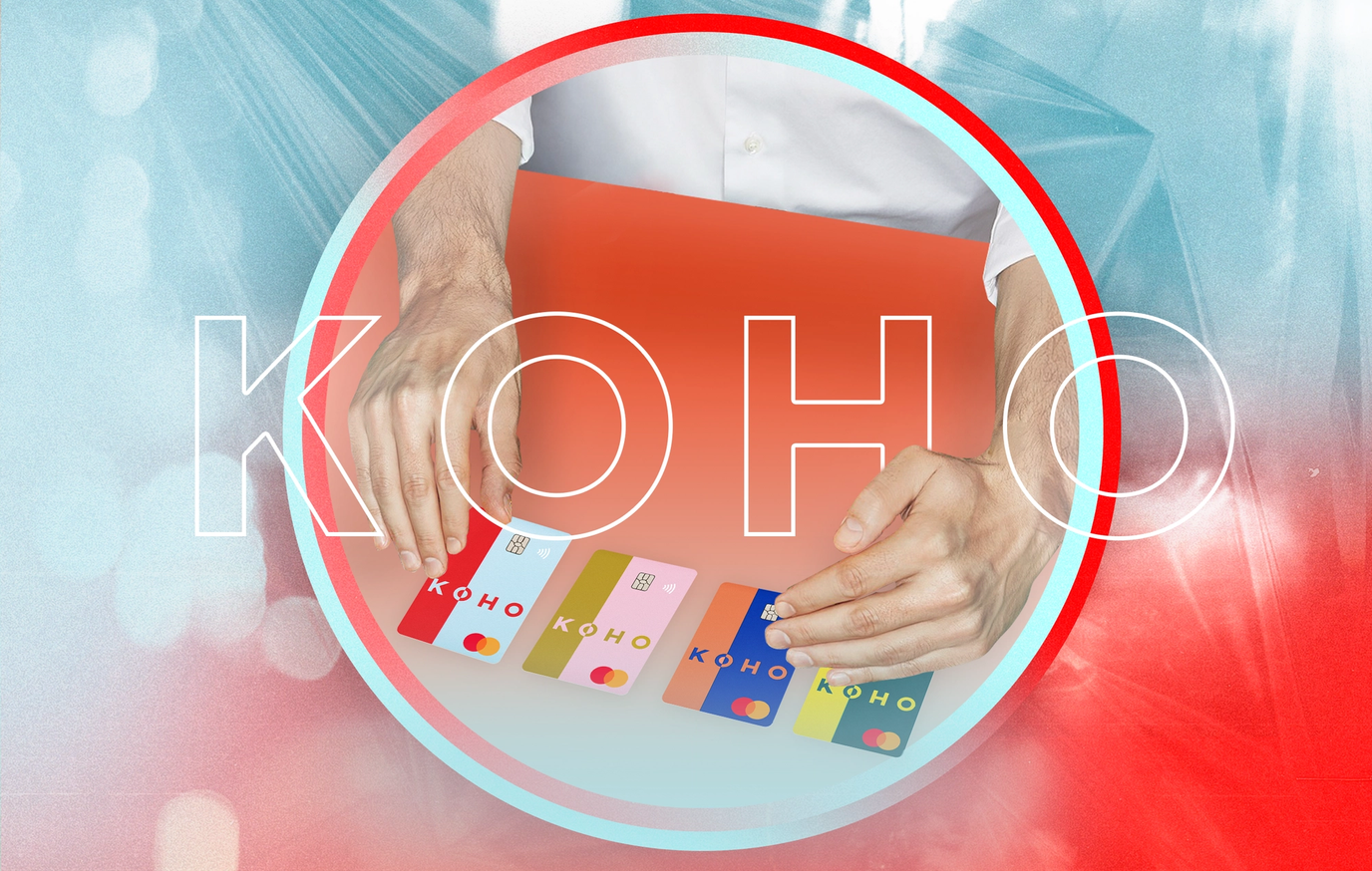
In a nation where roughly eight out of 10 Canadians either own or use a credit card, it's clear that this form of payment continues to reign supreme for in-store transactions, according to Statista. But what about those moments when you need to withdraw cash directly? Whether it's for an emergency or a cash-only situation, your credit card can be a lifeline.
However, withdrawing cash from credit cards isn't as straightforward as using your checking account at an ATM. Understanding the nuances, such as the cash advance fee, cash advance limit, and how these transactions impact your credit card balance, is crucial.
Remember, cash advances typically come with higher fees and interest rates. The credit card company or credit card issuer charges these fees directly from your credit card account upon each cash withdrawal.
But why consider a cash advance? Sometimes, immediate financial needs arise, and withdrawing money directly from your credit card seems like the quickest solution. Yet, it's vital to be aware of the terms set by your credit card issuers, including your specific cash advance limit and how these advances can affect your overall credit card balance.
Whether you're contemplating withdrawing cash from credit cards or exploring alternatives like "can I cash a cheque online?", staying informed will help you make savvy financial decisions.
What Are Cash Advances?
Cash advances are a feature offered by most credit card companies that allow you to withdraw money from your credit card account up to a certain credit limit. For instance, if you're travelling abroad, you might opt for a cash advance withdrawal for immediate expenses, considering the practicality of having cash in hand, especially when choosing between debit or credit card for international travel is essential.
However, it's important to be mindful of cash advance interest rates, which are typically higher than those applied to purchases.
When you perform a cash advance withdrawal, the amount is deducted from your available credit limit. But be cautious: frequent withdrawals can affect your credit scores due to the increased utilization of your credit card accounts. Always consider the long-term implications before deciding to take out a cash advance.
Financial Implications and Cost of Cash Advance
When you borrow cash from a credit line through an ATM, it's essential to comprehend the associated costs fully. These financial obligations go beyond just accessing your funds; they impact your overall budget and financial health.
Cash Advance Fees: The Immediate Cost
The bank imposes a cash advance fee when you perform cash withdrawals using your credit card. This fee can be a flat fee or a percentage of the transaction amount, adding to the total cost of obtaining cash. It's crucial to consult your credit card's terms for the exact fee structure.
Remember, this is on top of any ATM fees, which have notably increased over time. Avoiding these fees can help manage overdraft fees and maintain a healthier credit utilization ratio.
Cash Advance APR: Understanding the Interest Rates
Unlike typical credit transactions, there's no grace period when you get cash from a credit card; interest starts accruing immediately. The Cash Advance APR (Annual Percentage Rate) is often higher than that for purchases, meaning you're charged interest at a steeper rate right from the transaction day. This can substantially increase the amount you owe, mainly if you already carry a balance on your card.
Comparing Costs: When to Consider Alternatives
Given the high costs associated with cash withdrawals from credit cards, considering alternatives is advisable. Comparing the costs with other borrowing options, like a personal loan or a high-interest savings account, can be beneficial.
Additionally, looking into solutions like 'build your credit with KOHO' might offer more manageable ways to handle finances without the hefty fees. Always explore options that might help you send or transfer money without incurring high fees and interest.
The Impact on Your Financial Health
The decision to take out cash from a credit card should not be taken lightly. Frequent withdrawals can inflate your credit utilization ratio, a vital factor in your credit scores. Higher utilization can lead to lower scores, affecting your ability to borrow in the future.
Carefully consider if the immediate need to accrue interest justifies the potential long-term cost, and always check if there are alternatives to avoid foreign transaction fees and other charges.
Utilizing Your Credit Card for Cash Withdrawals
Extracting cash quickly from your credit line via an ATM involves more than just tapping a few buttons. Here's how to navigate this with financial savvy.
How to Use Your Credit Card at an ATM
Insert your card at a bank branch or ATM within your bank's network to minimize ATM fees. Follow the prompts to select the credit option and enter your PIN. Remember, this transaction will appear as its own line item on your credit card statement and might incur one-time fees in addition to the interest rate.
Precautions When Withdrawing Cash from Your Credit Card
Be aware of the additional fees and higher interest rates compared to other purchases. To avoid interest piling up, you may consider transferring money from a credit card directly to your bank account and using services like KOHO for businesses, which can offer more manageable terms.
How Cash Advance Limits Affect Your Withdrawals
Ensure there is enough money available within your cash advance limit. Exceeding this can result in declined transactions and additional fees. Regularly monitor your account to stay within your limit and continue making purchases without disruption.
Practical Steps to Take Before Obtaining a Cash Advance
Before diving into the world of cash advances, weighing your options and preparing adequately is crucial.
Things to Consider Before Taking a Cash Advance
Assess the necessity of the cash advance carefully. Many credit cards offer alternatives, such as transferring money from a credit card, which could be less costly. Remember, interest accumulates on cash advances from the moment you take them out.
Prepare Your Bank Account for a Cash Advance
Ensure your bank account has sufficient funds to cover the advance and any forthcoming charges. This foresight can prevent unwanted surprises and manage your financial health effectively.
Setting Up Your Credit Card PIN for Cash Withdrawals
Set up or confirm your credit card PIN in advance for seamless transactions. This is essential for withdrawing cash and for verifying your identity. As part of your financial management, consider also checking your free credit score to understand how a cash advance might impact your credit health.
Exploring Alternatives to Credit Card Cash Advances
When you're in a pinch, withdrawing cash using your credit card might seem like an easy solution. However, this method often comes with high costs and immediate interest accrual. Let's consider some less costly alternatives and understand when each option makes the most sense.
Exploring Other Methods to Obtain Cash
One alternative is using convenience checks provided by your credit card issuer. These checks can be used similarly to personal checks but draw from your credit card's available credit. They come with their own set of fees and interest rates, so it's crucial to understand the terms before using a convenience check.
Another method is transferring funds directly from a virtual credit card to your bank account, which could offer more favourable terms than a cash advance.
Setting up overdraft protection coverage with your bank can provide a safety net if you're worried about overdrawing from your account. Additionally, adopting robust plans for spending and saving can help you avoid situations where you urgently need cash.
Engaging with platforms focused on shopping with virtual money can also provide insights and tools to manage your finances better without resorting to costly cash advances.
Pros and Cons of Credit Card Cash Withdrawals Versus Alternatives
Using a credit card for cash withdrawals might offer the convenience of quick access to cash, but it's important to weigh this against the downsides. The immediate interest accrual and additional ATM fees can make this option significantly more expensive than other methods.
Moreover, cash advances do not benefit from grace periods that regular purchases enjoy, meaning there's no delay before interest starts piling up.
In contrast, convenience checks might offer a lower interest rate than cash advances, though they can still incur high fees. Review the specifics of your credit agreement to understand the costs associated.
On the other hand, strategies like overdraft protection or utilizing a virtual credit card can provide alternative ways to manage short-term financial needs without the steep costs associated with cash advances.
When to Use a Debit Card Instead of a Credit Card for Cash Withdrawals
Choosing a debit card for cash withdrawals can be a wiser financial move in many situations. Unlike credit card cash advances, using a debit card allows you to access your own money without incurring high interest rates or one-time fees.
However, be mindful of ATM fees that might apply if you use a machine outside your bank's network. Essentially, if you have enough money in your account to cover your needs, opting for a debit card withdrawal can be a more cost-effective and straightforward option.
Final Thoughts
In summary, while withdrawing cash from your credit card can provide quick access to funds, it often comes at a high cost due to interest and fees. Before using this option, consider alternatives like using your card for direct purchases or convenience checks to avoid steep charges.
It's crucial to arm yourself with knowledge before making financial decisions. Dive into our personal finance glossary to better understand your options and make choices that benefit your long-term financial health. Remember, the best financial move always aligns with your personal goals while keeping costs low.

About the author
Nick is a freelance writer and entrepreneur with a particular interest in business finance. He's been featured in publications like Popular Mechanics and Apple News
Read more about this author